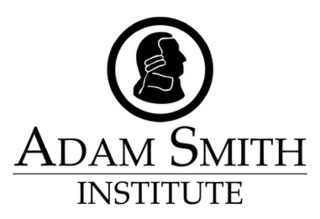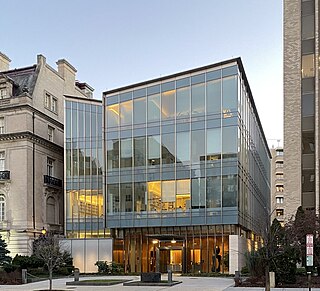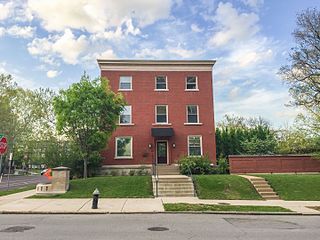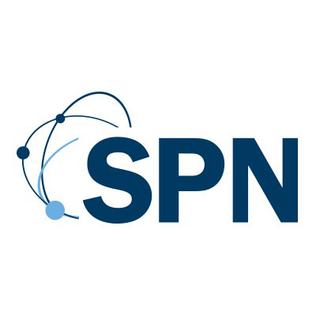
A think tank, or policy institute, is a research institute that performs research and advocacy concerning topics such as social policy, political strategy, economics, military, technology, and culture. Most think tanks are non-governmental organizations, but some are semi-autonomous agencies within government, and some are associated with particular political parties, businesses or the military. Think tanks are often funded by individual donations, with many also accepting government grants.

The Mackinac Center for Public Policy in Midland, Michigan, is the largest U.S. state-based free market think tank in the United States. The Mackinac Center conducts policy research and educational programs. The Center sponsors MichiganVotes.org, an online legislative voting record database which provides a non-partisan summary of every bill and vote in the Michigan legislature. Mackinac Center scholars generally recommend lower taxes, reduced regulatory authority for state agencies, right-to-work laws, school choice, and enhanced protection of individual property rights; they avoid socially conservative issues such as reproductive or marriage rights.

The Centre for Policy Studies (CPS) is a centre-right think tank and advocacy group in the United Kingdom. Its goal is to promote coherent and practical policies based on its founding principles of: free markets, "small state," low tax, national independence, self determination and responsibility. While being independent, the centre has historical links to the Conservative Party.

The Adam Smith Institute (ASI) is a UK-based neoliberal think tank and lobbying group, named after Adam Smith, a Scottish moral philosopher and classical economist. The Institute advocates free market and classical liberal ideas, primarily via the formation of policy options with regard to public choice theory, which political decision makers seek to develop upon. ASI President Madsen Pirie has sought to describe the activity of the organisation as "[w]e propose things which people regard as being on the edge of lunacy. The next thing you know, they're on the edge of policy".
The Reason Foundation is an American libertarian think tank that was founded in 1978. The foundation publishes the magazine Reason. Based in Los Angeles, California, it is a nonprofit, tax-exempt organization. According to its website, the foundation is committed to advancing "the values of individual freedom and choice, limited government, and market-friendly policies." In the 2014 Global Go To Think Tank Index Report, the foundation was number 41 in the "Top Think Tanks in the United States".

The National Taxpayers Union (NTU) is a fiscally conservative taxpayer advocacy organization and taxpayers union in the United States, founded in 1977 by James Dale Davidson. NTU says that it is the oldest taxpayer advocacy organization in the nation. It is closely affiliated with a non-profit foundation, the National Taxpayers Union Foundation (NTUF). The organization has ranked politicians on their perceived fiscal responsibility, in the eyes of the National Taxpayers Union.
Wendell Cox is an American urban policy analyst and proponent of the use of the private car over rail projects. He is the principal and sole owner of Wendell Cox Consultancy/Demographia, based in the St. Louis metropolitan region and editor of three web sites, Demographia, The Public Purpose and Urban Tours by Rental Car. Cox is a fellow of numerous conservative think tanks and a frequent op-ed commenter in conservative US and UK newspapers.

The Peterson Institute for International Economics (PIIE), known until 2006 as the Institute for International Economics (IIE), is an American think tank based in Washington, D.C. It was founded by C. Fred Bergsten in 1981 and has been led by Adam S. Posen since 2013. PIIE conducts research, provides policy recommendations, and publishes books and articles on a wide range of topics related to the US economy and international economics.

The Urban Institute is a Washington, D.C.–based think tank that conducts economic and social policy research to "open minds, shape decisions, and offer solutions". The institute receives funding from government contracts, foundations, and private donors.

Cascade Policy Institute is a non-profit and non-partisan American libertarian think tank based in Oregon that focuses on state and local issues. Founded in 1991, the institute advocates limited government in cost and size, and promotes privatization and other free market alternatives to government services. Cascade is a member of the State Policy Network, a network of conservative and libertarian think tanks in the United States and Canada.

The TaxPayers' Alliance (TPA) is a pressure group in the United Kingdom which was formed in 2004 to campaign for a low-tax society. The group had about 18,000 registered supporters as of 2008 and claimed to have 55,000 by September 2010. However, it has been suggested that a vast majority of these supporters – who do not contribute financially or engage in campaigning – were simply signed up to a mailing list.

The Show-Me Institute, or SMI, is an American think tank based in St. Louis, Missouri that promotes public policies that advance free market principles. Founded in 2005, the organization focuses on economic and good governance issues in the state of Missouri. The stated mission of the Show-Me Institute is "improving the quality of life for all citizens of Missouri by advancing sensible, well-researched solutions to state and local policy issues." The Institute opened a branch office in Kansas City in 2014.
A stadium subsidy is a type of government subsidy given to professional sports franchises to help finance the construction or renovation of a sports venue. Stadium subsidies can come in the form of tax-free municipal bonds, cash payments, long-term tax exemptions, infrastructure improvements, and operating cost subsidies. Funding for stadium subsidies can come from all levels of government and remains controversial among legislators and citizens.

Antimonopoly Policy Improvement Center (APIC) is a leading think-tank, non-commercial and independent research institution which focuses in competition, innovation, business and consumer policies in Uzbekistan. APIC's slogan mark is "Knowledge for development", which APIC tries to achieve through the results of its products. Members of the staff consists of young and professional specialists from the leading universities of US, UK and other developed countries. It is the first institution in Uzbekistan, which started publishing monthly business activity index in July 2009, which consists of surveys from the large and medium-sized companies, representing leading and the most dynamic spheres of Uzbekistan's economy. One of its flagship research products was the study of remittances in Uzbekistan, conducted with the financial assistance of International Development Research Centre of Canada and on innovation policies in Uzbekistan. APIC also conducts due diligence, risk analysis, market studies, nationwide surveys (SPSS), trainings and seminars.

The State Policy Network (SPN) is a nonprofit organization that serves as a network for conservative and libertarian think tanks focusing on state-level policy in the United States. The network serves as a public policy clearinghouse and advises its member think tanks on fundraising, running a nonprofit, and communicating ideas. Founded in 1992, it is headquartered in Arlington, Virginia, with member groups located in all fifty states.
An economic development incentive is known as “cash or near-cash assistance provided on a discretionary basis to attract or retain business operations." These benefits principally encompass tax and economic incentives provided by federal, state, or local governmental bodies. Entities such as utilities and non-profits, can also make incentives available for these purposes. They accord the recipient a monetary benefit or an in-kind benefit. Private enterprises, including individuals, are generally the ultimate beneficiaries of economic development incentives. Depending on the incentive in question, other qualified parties are eligible to receive it, as in the case of municipalities, utilities, or economic development agencies.

The Yankee Institute for Public Policy is a conservative American think tank based in Hartford, Connecticut, that researches Connecticut public policy questions. Organized as a 501(c)(3), the group's stated mission is to "develop and advocate for free market, limited government public policy solutions in Connecticut." Yankee was founded in 1984 by Bernard Zimmern, a French entrepreneur who was living in Norwalk, Connecticut, and professor Gerald Gunderson of Trinity College. The organization is a member of the State Policy Network.
The Kansas Policy Institute (KPI) is a free market American think tank based in Wichita, Kansas. A member of the State Policy Network, it primarily focuses on state and local policy issues in Kansas, including education, budget and spending, health care, and property taxes. KPI is a 501(c)(3) non-profit organization.

The R Street Institute is an American center-right think tank headquartered in Washington, D.C. The institute's stated mission is to "engage in policy research and outreach to promote free markets and limited, effective government." R Street was established in 2012 when its founders split from the Heartland Institute out of disagreement with Heartland's public denial of the scientific consensus on climate change. It has branch offices across the U.S.

The Illinois Policy Institute(IPI) a conservative nonprofit think tank with offices in Chicago and Springfield. Founded in 2002, it is active in the areas of education policy, pension policy, and state budget issues. IPI advocates for smaller government and lower taxes. It has an affiliated lobbying arm and legal arm. IPI is a member of the State Policy Network, a consortium of free-market think tanks in the U.S.














